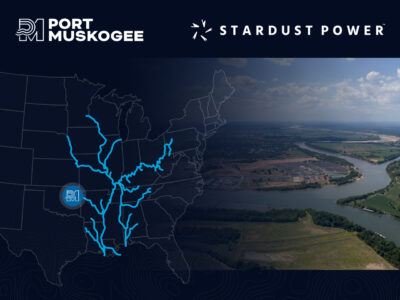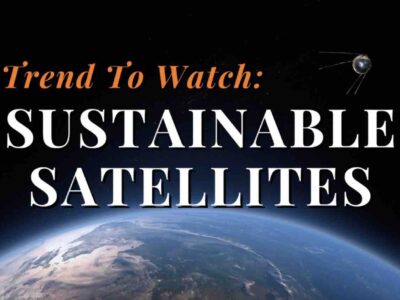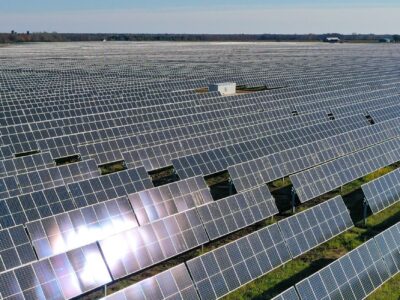Plenty of niche American carmakers are entering a saturated market, with more auto startups than ever before. Some, like Foxconn, enter the fray with ambitious ideas but face financial hardships and manufacturing problems.
Others like Rivian and Fisker manage to find their footing but need help to compete with Tesla, GM, Ford, Toyota, Hyundai, Mercedes, and Volkswagen. However, REVO ZERO, based in Northern Virginia, might have the edge: hydrogen fuel cell technology combined with electric power.
REVO ZERO was founded in 2020 when a group of auto industry veterans linked up to create a more practical zero-emission vehicle. In a news release, the company said the plan was to create a better zero-electric vehicle (ZEV) technology. It wanted to find an application that fits industrial and everyday use. That led the firm to develop its plug-in fuel (pFC) technology.
The startup’s engines combine a hydrogen fuel cell and hybrid electric power into one ultra-efficient, planet-friendly driving experience. The car only emits water and no harmful emissions. It eliminates all carbon emissions, as well as benzene, sulfur, particulate matter, and other health risks associated with internal combustion.
REVO’s first vehicle, the ENERGY SUV, has the chance to shake up the ZEV market. The company says that its Range Rover-esque SUV has an estimated 700 miles of range thanks to its pFC drivetrain. Drivers will have the choice of using plug-in hybrid electric or hydrogen fuel. If customers need to top off the tank, they can stop at one of REVO’s H2 refueling stations.
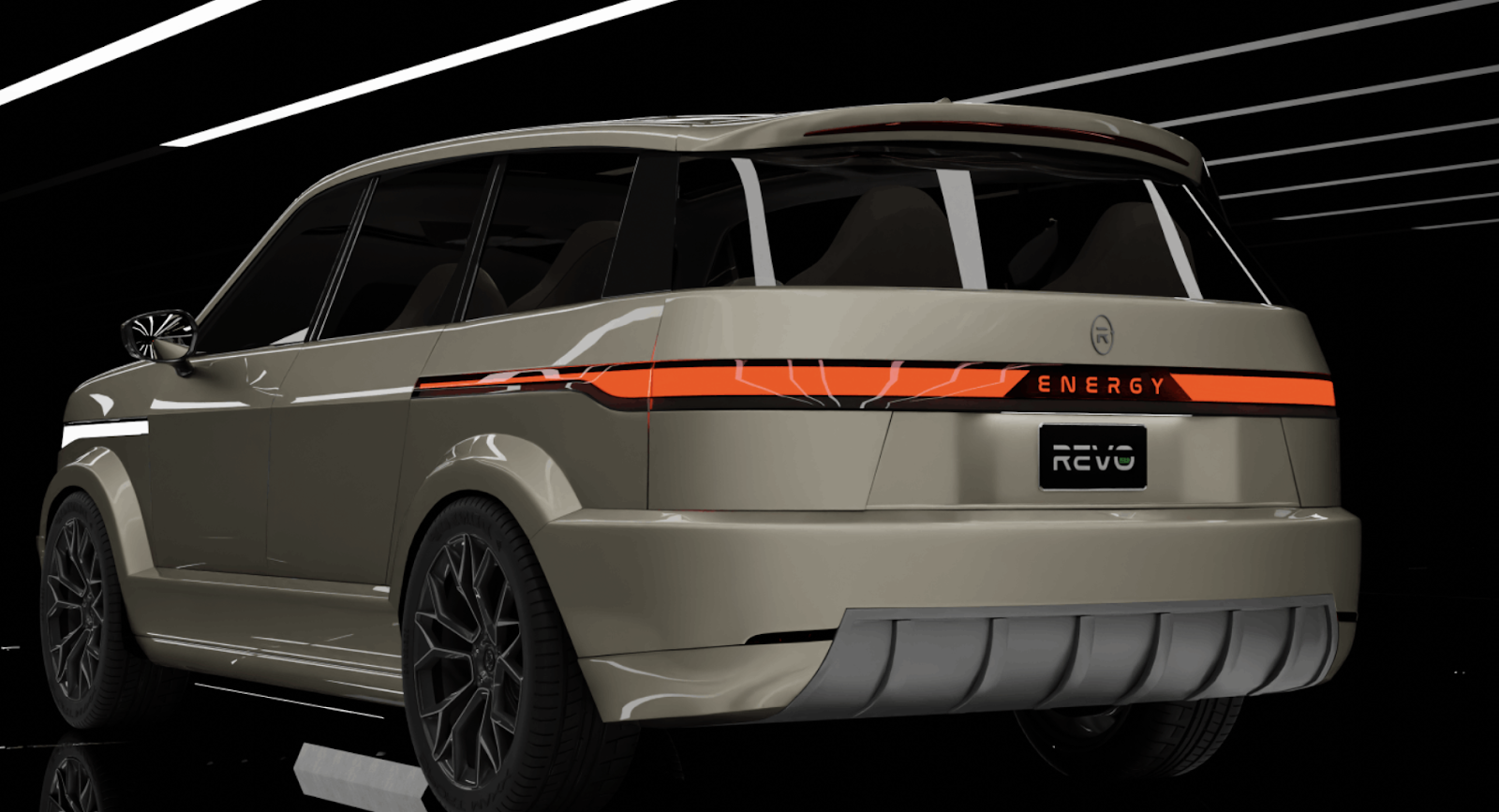
Photo Courtesy REVO ZERO
Dan Levine, strategic advisor to the REVO ZERO board, told The Business Download that ENERGY is the longest-range ZEV currently on the market, and it’s what the public wants: a car with a reliable range that is good for the planet.
“The model ENERGY is the answer to what we have been waiting for, for a long time,” Levine said via email. “It is clean and ideal for local and long trips. Also, it’s different, it’s innovative, and it’s luxurious.”
Let’s spend a moment examining the ENERGY’s range. What other EV claims anywhere close to 700 miles of range? There are examples of electric cars trying to break the 500-mile barrier or battery manufacturers building longer-range batteries. We haven’t seen these in action, though. REVO ZERO has potentially found a new, efficient method of decarbonizing the American auto sector with their SUV and engine tech.
Range anxiety might not concern future ENERGY customers, but not many traditional gas stations have hydrogen gas pumps. They barely have EV charging stations as it is. To address this, REVO is creating its charging/refueling network. These stations will have EV chargers and hydrogen dispensers with H-35 or H-70.
The company says the ENERGY refills in just seven minutes at the pump (based on estimates). A storage unit with 18 tanks will be attached to the pump. All hydrogen will come from an electrolysis process that separates oxygen and hydrogen atoms in water. The EV chargers will be Level 2, the most common attachment for non-Tesla EVs.
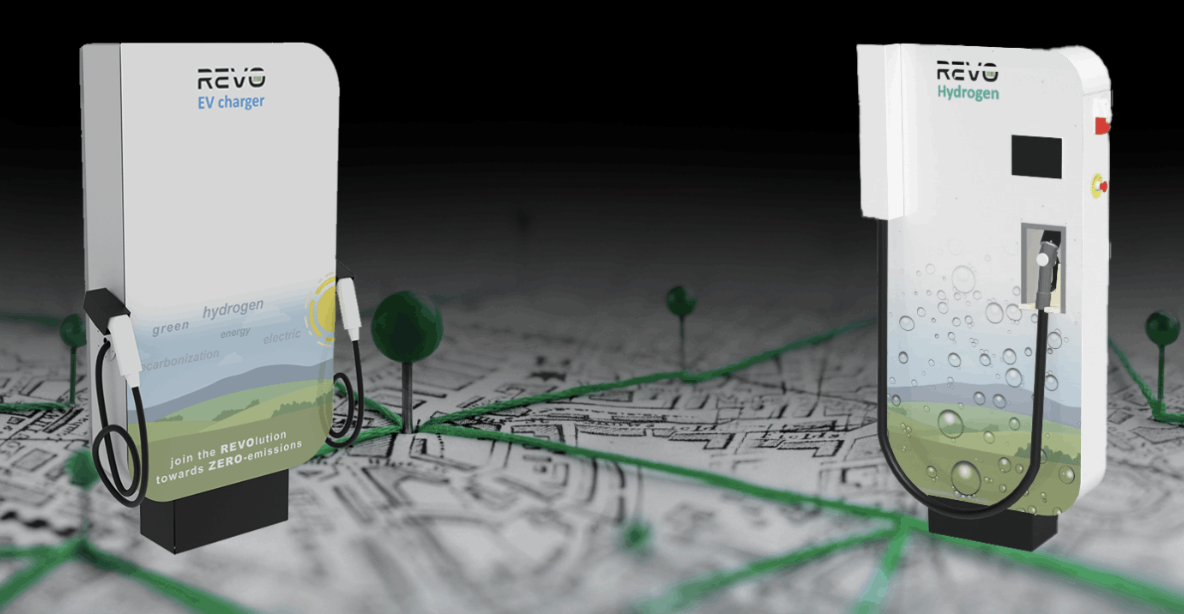
Photo Courtesy REVO ZERO
Sourcing the hydrogen is the biggest challenge. There are plans to build a Northeast regional hub in Holyoke, Massachusetts. In a July 2023 news release, the company said it picked this town for its “strategic geographic positioning, scalability, a favorable business environment, and a skilled labor force.”
REVO’s hydrogen fueling stations are not limited to its SUV and future EVs. The company has contracts with 20 regional airports as the aviation industry continues to move to sustainable aviation fuel.
Recently, renowned architect Javier Alonso Madrid joined efforts to expand REVO’s global presence. The goal is to use Alonso Madrid’s technical expertise to expand the hydrogen fuel presence in America and Europe.
The ENERGY is a striking vehicle. Described as a combination of a crossover and minivan, it has sliding rear doors and three-row seating that fits up to six passengers.
A flat-bottom steering wheel and L-shaped infotainment system complete the front. Now available for pre-order, customers can put down a $500 deposit for the upcoming SUV.
It is not the first attempt at a pFC vehicle. Toyota launched two 1980s Corolla models converted with electric and hydrogen power. Extreme E Racing, the all-electric rally car circuit, plans to switch to hydrogen and rebrand as Extreme H. BMW plans to launch a hydrogen-powered SUV this year. These signal a change in attitude in the automotive industry.
“We’re extremely excited, and we believe the world will be too, once they discover that there is a zero-emissions car available with a driving range of up to 700 miles and a refueling time that is as quick as any conventional car,” Levine expressed in his email.
Startup brands like REVO ZERO innovate solutions that larger firms may implement in a different capacity. A great example is the EV charger — there are plenty of EV charger producers, but they all offer something different. REVO ZERO is attempting to do the same with its ZEV and upcoming charging network.


